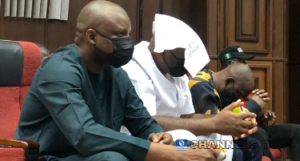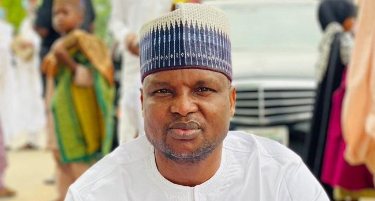Justice Emeka Nwite has recently declined to grant bail to the suspended Deputy Commissioner of Police, Abba Kyari, and two other suspended senior police officers. This decision came in separate rulings where the court determined that the defendants had not provided sufficient evidence to justify the court’s discretion in granting bail.
Justice Nwite emphasized that the court must exercise its discretion judiciously and, in this particular case, could not find grounds to grant bail to the defendants. This decision follows the detention of Abba Kyari, who was arrested on February 14, 2022, by the National Drug Law Enforcement Agency (NDLEA) for his alleged involvement in a cocaine trafficking scheme.

Kyari, who had been the head of the Inspector-General of Police’s Intelligence Response Team (IRT), along with four other suspended officers, faced arraignment on March 7, 2022. The charges were not limited to the police officers; two suspected drug traffickers, Chibunna Umeibe and Emeka Ezenwanne, were also implicated. They were apprehended at the Akanu Ibiam International Airport in Enugu and accused of trafficking 17.55 kilograms of cocaine. These actions were deemed a violation of section 14(b) of the NDLEA Act, CAP N30 Laws of the Federation of Nigeria 2004.
Previously, the court had also denied bail to these defendants and ordered their detention in Kuje prison. The consistent refusal to grant bail highlights the serious nature of the charges and the court’s stance on ensuring that due process is meticulously followed.
The case has attracted significant attention, given Abba Kyari’s high-profile status and his role in numerous high-stakes law enforcement operations prior to his suspension. The NDLEA’s arrest of Kyari and his co-accused underscored the severity of the allegations, which involve substantial quantities of illicit drugs and suggest a significant breach of trust and legal conduct by senior law enforcement officers.
The court’s recent rulings underscore the importance of evidentiary support when seeking bail in serious criminal cases. Justice Nwite’s insistence on a judicious exercise of discretion reflects a commitment to maintaining the integrity of the judicial process, especially in cases involving high-profile defendants and severe criminal charges.




